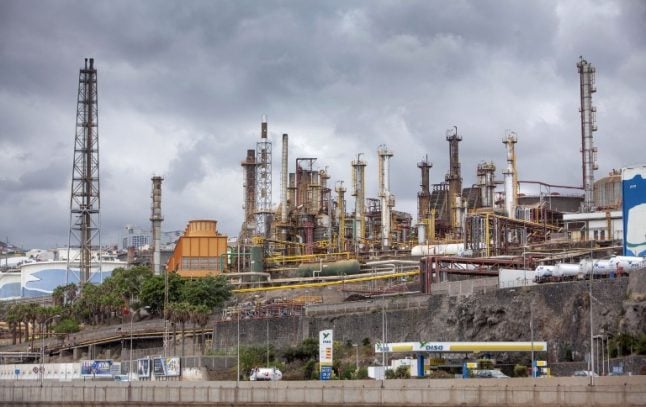OIL
Abu Dhabi awards Spanish firm stake in offshore oil concession
Abu Dhabi National Oil Co. (ADNOC) said on Sunday it has awarded Spanish Cepsa firm a 20 percent share in a concession of two offshore oil fields in a deal worth $1.5 billion.
Published: 18 February 2018 15:20 CET

A Cepsa-owned and operated oil refinery on the Spanish Canary island of Tenerife. Photo: Desiree Martin/AFP
The 40-year deal aims to double production at the emirate's offshore fields of SARB and Umm Lulu to 215,000 barrels per day, state-owned ADNOC said in a statement.
Its subsidiary, ADNOC Offshore, will retain a 60 percent stake in the project while the remaining 20 percent will be awarded to another company, the statement said.
Cepsa, a global oil and gas company, is wholly-owned by Abu Dhabi's Mubadala Investment Company which has assets worth over $125 billion.
“This long-term agreement is a milestone in the development of Abu Dhabi's integrated oil and gas sector and in the delivery of ADNOC's 2030 smart growth strategy,” CEO of ADNOC Sultan al-Jaber said.
Last week, ADNOC awarded a 10 percent stake in the offshore concession of Lower Zakum to an Indian consortium led by ONGC Videsh company for $600 million.
ADNOC Offshore also retained a 60 percent stake in that concession, with plans to award the remaining 30 percent to a third company. The aim is to more than double production at Lower Zakum to 450,000 bpd.
The vast majority of the United Arab Emirates' crude oil reserves are located in Abu Dhabi — capital of the Gulf emirate.
Abu Dhabi in recent years has granted concessions to ExxonMobil, Total, BP, Shell and China's CNPC, among others, as old concessions have expired. The new concessions have been offered at nearly half the duration of the old concessions — with ADNOC taking majority stake in the projects.
The national company aims to increase the Abu Dhabi's oil production capacity from 3.2 million barrels per day to 3.5 million by the end of 2018.
Url copied to clipboard!


 Please whitelist us to continue reading.
Please whitelist us to continue reading.